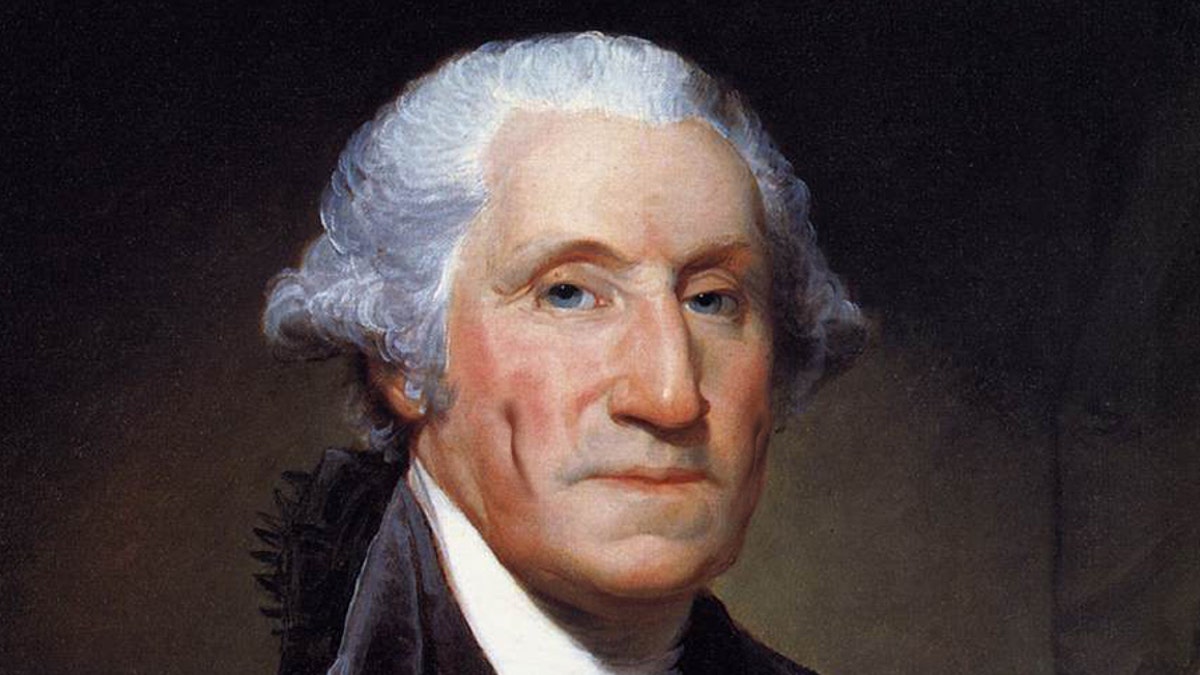
A push is under way by lawmakers, historians and educators to give George Washington his birthday back instead of "diminishing the memory of the greatest American" by honoring it with a three-day weekend.
Rep. Frank Wolf, R-Va., is sponsoring a bill to change the holiday to Feb. 22 from the third Monday in February. That date on the calendar is when the United States has marked Washington's birthday since 1971, when a law took effect making Memorial Day, Veterans Day and Presidents Day all Monday holidays to give Americans a three-day weekend.
"President Washington exemplifies the best that America and Americans have to offer the world: principled leadership, personal bravery, a sense of duty and public service, patriotism, recognition of our unique role in world history and a reverence for his Creator," Wolf said in prepared remarks during a House hearing on Wednesday. "His enduring service deserves to be remembered on his actual birthday."
Wolf said Feb. 22 marked Washington's 280th anniversary of his birth, yet most Americans celebrated a "generic" Presidents Day holiday two days earlier.
"Does anyone here today celebrate your birthday on the third Monday of a month? Of course not," Wolf said. "So why do we diminish the memory of the greatest American by turning his birthday into nothing more than a three-day weekend?"
Wolf was backed at Wednesday's hearing by lawmakers of both parties and a member of the Mount Vernon Ladies' Association, which cares for Washington's historic home in Virginia.
Anne Neal, president of the American Council of Trustees and Alumni, said she also supported restoring the holiday.
"As we move forward into the 21st century, too many of our future leaders are graduating with a profound historical illiteracy that bodes ill for the future of the republic," Neal said. "George Washington is no mere president to be jumbled with Millard Fillmore and Chester A. Arthur."
Not everyone is behind the idea, however.
David Blanchette, a spokesman for the Lincoln Presidential Library & Museum, told FoxNews.com the organization doesn't have a problem honoring Washington, but thinks the nation's 16th president should get equal treatment on Feb. 12.
"If Washington is going to be singled out, we certainly think Lincoln should have his own day as well," Blanchette said Thursday. "The two presidents who have most shaped the country as we know it today are George Washington and Abraham Lincoln, so we think it's certainly appropriate to honor both individuals on their specific birthdays equally."
That does not mean, Blanchette said, that a separate push will be launched for a date to solely honor Lincoln's birthday.
According to C.L. Arbelbide, an author and historian specializing in federal holiday history, in 1968 the decision to move the federal holidays to Mondays was supported by business interests, including the Chamber of Commerce of the United States, the National Association of Manufacturers, the National Association of Travel Organizations and the National Retail Federation.
Writing for the National Archives in 2004, Arbelbide recounted that labor unions also supported the plan, but educational organizations did not because of concern that it would prolong the school year since students are required to attend a certain number of days, which could be pushed into the summer break.
Now, however, since the school year has expanded and educational mandates have increased, the various federal holidays are used as backup days for "staff development time, teacher/parent meetings, or as a backup snow make-up day," Arbelbide wrote.
Asked about possibly moving the date yet again, both the United Federation of Teachers and American Federation of Teachers told FoxNews.com that this is not an issue on their radar.
While many have been concerned that learning about the first president has been diminished since the holiday was changed, also lost in many lessons is that the new date was never termed "Presidents Day" by Congress.
Also frequently lost in the history is that Washington was born while England still used the Julian calendar -- meaning his birthday was actually Feb. 11, 1732. Only when the calendar changed to the Gregorian calendar in September 1752 did his birthday change to Feb. 22.
Ironically, the third Monday of the month never falls later than Feb. 21, so "Presidents Day" never actually occurs on his birthday.
FoxNews.com's Joshua Rhett Miller and The Associated Press contributed to this report.
























